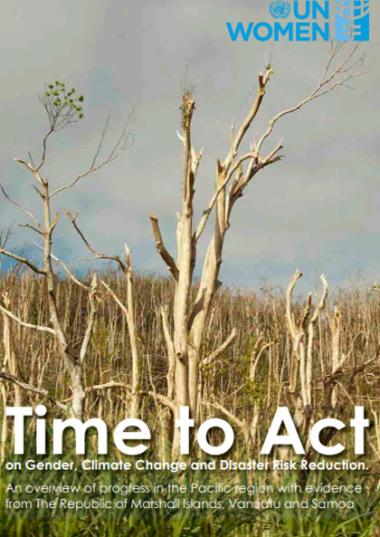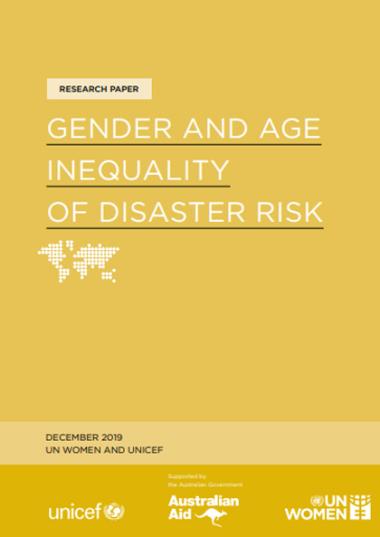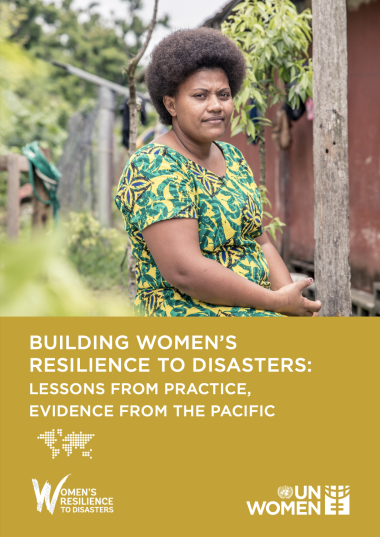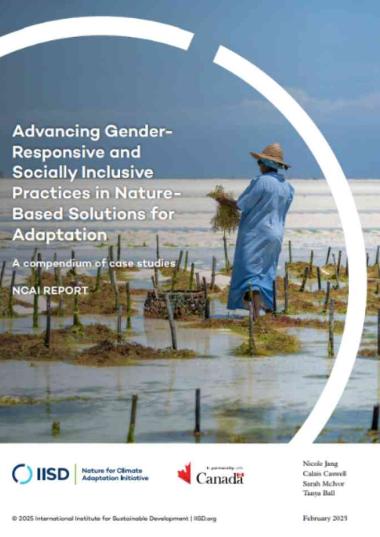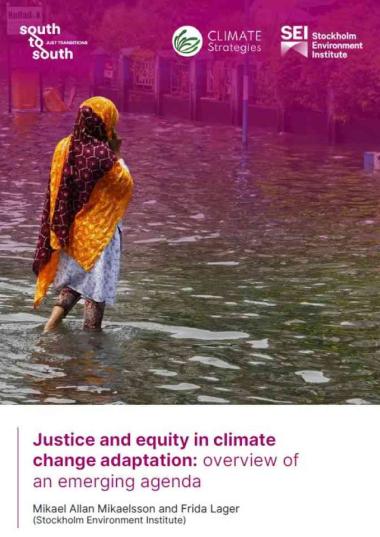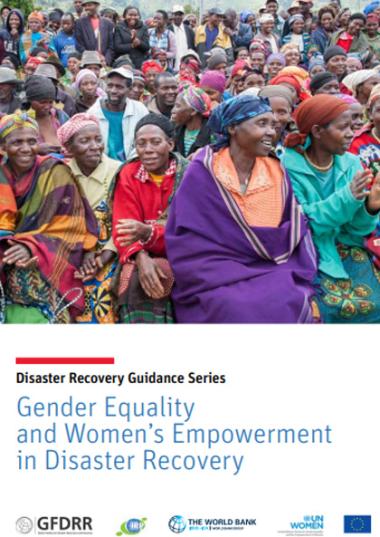
How do gender approaches contribute to climate compatible development? Lessons from Kenya
May 2016
This policy brief evaluates whether gender-sensitive approaches to climate compatible development are being adopted in urban areas of Kenya and if so, whether these approaches influence development outcomes for men and women. Although considerable evidence exists pertaining to rural areas, significant kowledge gaps can be found in relation to climate compatible development and gender in urban areas.
The Kenyan case study examined the experiences of Kisumu, Kenya, drawing lessons from the five-year project ‘People’s Plans into Practice (PPP): Building Productive and Liveable Settlements with Slum Dwellers in Kisumu and Kitale’. The findings presented in this brief are based on interviews and focus group discussions held with key informants, as well as a review of relevant literature, policy documents and plans.
The research attempts to respond to the following four questions:
- What does a ‘gender-sensitive’ approach to climate compatible development mean in the urban context?
- What is the evidence of the relevance of gender-sensitive programming in climate compatible development to promote and achieve people’s empowerment?
- Does a gender-sensitive approach enable better climate compatible development outcomes and if so, in what way?
- What socio-economic, political and cultural factors constrain or favour gender-sensitive approaches in the context of climate compatible development, and the ability of men and women to tackle climate-related risks in urban contexts?
Key messages
- The study assessed gender awareness and action in Kisumu, with a focus on the 5-year project ‘People’s Plans into Practice (PPP): Building Productive and Liveable Settlements with Slum Dwellers’, whose main achievement has been to improve the wellbeing, productivity and living conditions of poor people in informal settlements.
- The study found that where vulnerable groups were included in decision-making processes, the project was better able to address their practical needs, which are often quite distinct from those in rural areas. When women participated actively in these processes they went on to take managerial and leadership roles.
- Despite this, limited opportunities exist for women’s participation in planning processes and project activities and men tend to dominate due to cultural attitudes.
- A very wide range of actions are recommended across all sectors of society to lift the barriers and address gender issues effectively in climate change interventions.
This brief is based on a research project carried out by Practical Action Consulting with support from the Institute of Development Studies, commissioned by and supported by the Climate and Development Knowledge Network (CDKN), to provide evidence on the advantages and challenges of integrating a gender dimension into climate compatible development strategies in urban settings, with a focus on Peru, India and Kenya.
